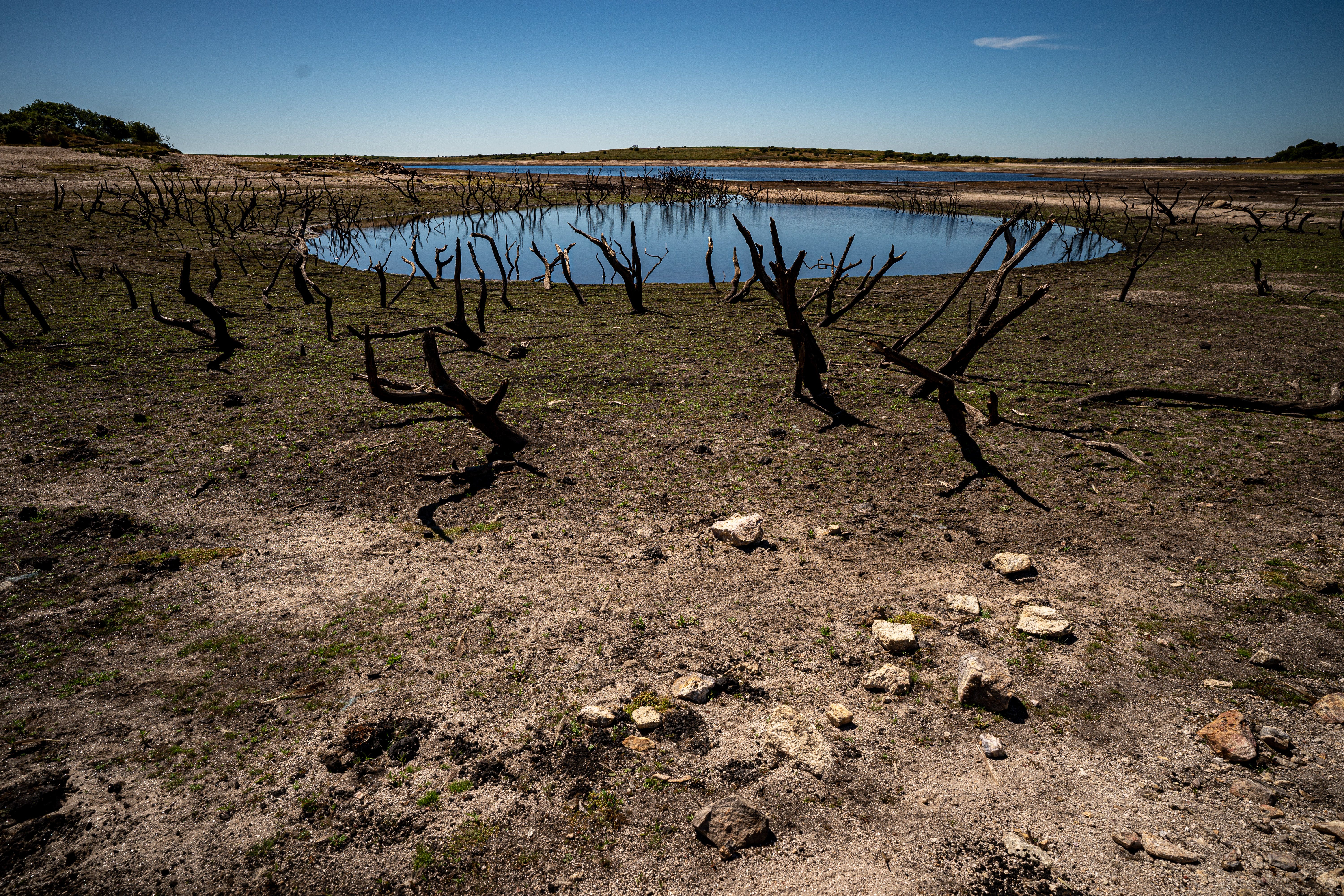Window of opportunity to preserve liveable climate rapidly closing, says IPCC
Extreme heat is already killing people around the world while increasing disease, displacement and loss of livelihood and culture, scientists say.

Your support helps us to tell the story
From reproductive rights to climate change to Big Tech, The Independent is on the ground when the story is developing. Whether it's investigating the financials of Elon Musk's pro-Trump PAC or producing our latest documentary, 'The A Word', which shines a light on the American women fighting for reproductive rights, we know how important it is to parse out the facts from the messaging.
At such a critical moment in US history, we need reporters on the ground. Your donation allows us to keep sending journalists to speak to both sides of the story.
The Independent is trusted by Americans across the entire political spectrum. And unlike many other quality news outlets, we choose not to lock Americans out of our reporting and analysis with paywalls. We believe quality journalism should be available to everyone, paid for by those who can afford it.
Your support makes all the difference.There is a rapidly closing window of opportunity to lower greenhouse gas (GHG) emissions and secure a safe and liveable future for the global population, according to a new UN report.
Scientists from the Intergovernmental Panel on Climate Change (IPCC) said there needs to be drastic and deep GHG emissions cuts to keep the average global temperature below 1.5C above pre-industrial levels.
Every fraction of warming escalates the severity of climate effects such as heatwaves, heavy rainfall and flooding, they said, while new evidence has shown even small changes can wreak havoc on communities.
Burning fossil fuels has already warmed the Earth by 1.1C, resulting in more frequent extreme weather and increased food and water scarcity for millions of people.
Human activities have unequivocally caused this warming, the report authors said, with current policies set to warm the Earth by a further 2C above pre-industrial temperatures by 2100.
This could cause catastrophic loss of life for species around the equator while exposing millions more people to dangerous levels of heat and humidity.
Global surface temperature has increased faster since 1970 than in any other 50-year period over the last 2,000 years and in 2019 atmospheric CO2 concentrations were higher than at any time in at least two million years, according to IPCC analysts.
Limiting the global temperature to 1.5C, above which scientists say the climate will become dangerously unstable, requires CO2 emissions to fall by 48% by 2030, 65% by 2035, 80% by 2040 and 99% by 2050.
IPCC author Professor Peter Thorne said: “The report is pretty clear that we will, almost regardless of emissions scenarios, reach 1.5C in the first half of the next decade.
“There is some uncertainty about that. The real question is whether our collective choices between now and then mean we reach and stabilise at or around 1.5C or whether we blast right through 1.5C, crash through 2C and keep going.”
Between 3.3-3.6 billion live in contexts highly vulnerable to climate change, the IPCC said, with those in the global south, small islands and the Arctic bearing the most harmful impacts.
Dr Aditi Mukherji, another of the 93 authors of the synthesis report, said: “Climate justice is crucial because those who have contributed least to climate change are being disproportionately affected.
“In the last decade, deaths from floods, droughts and storms were 15 times higher in highly vulnerable regions.”
In the UK, climate change brings more extreme rainfall and flooding as well as more extreme heat, drought and food insecurity.
Coastal communities face seas that will unavoidably rise for centuries or even millennia, the IPCC said, because of melting ice sheets and deep ocean warming.
The report, approved by UN member states after a week-long session in Interlaken, Switzerland, brings together the findings of three previous volumes on physical science, mitigation and adaptation as well as three special reports on global warming of 1.5C, the ocean and cryosphere and climate change and land.
It will be the last such report for several years and sets out the scientific basis for this decade’s global climate action.
The IPCC said choices and actions implemented throughout the 2020s will have impacts now and for thousands of years.
Dr Chris Jones, of the Met Office and an IPCC author, said: “Today’s report reveals the sheer scale of the ambition required to avoid the worst consequences of climate change.
“We know that climate change is already happening and the world has already witnessed extreme events associated with the relatively modest warming we have seen so far. In fact, the world now is the coolest it is going to be at least for many decades.”
Met Office analysis, published to coincide with the IPCC report, suggests slashing global GHG emissions in half by 2030 would only leave a 50% chance of limiting the global average temperature to 1.5C and said even bigger cuts are required to give more certainty.
The IPCC said some industries that are hard to decarbonise, such as agriculture, aviation and shipping, will need to be counterbalanced by removing CO2 from the atmosphere, while private finance is key to climate adaptation and mitigation.
Dr Christopher Trisos, one of the report’s authors, said: “The greatest gains in wellbeing could come from prioritising climate risk reduction for low-income and marginalised communities, including people living in informal settlements.
“Accelerated climate action will only come about if there is a manyfold increase in finance. Insufficient and misaligned finance is holding back progress.”